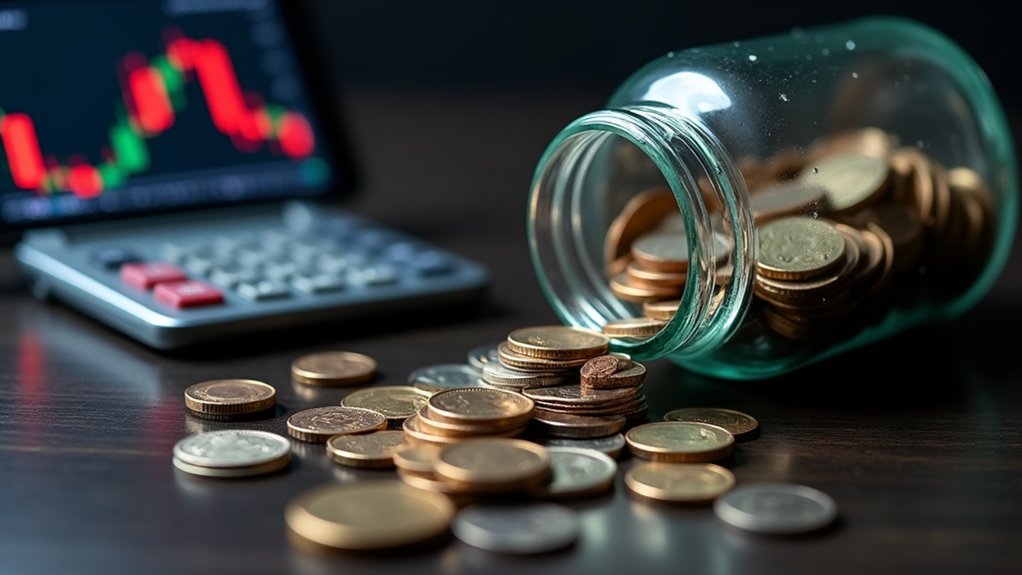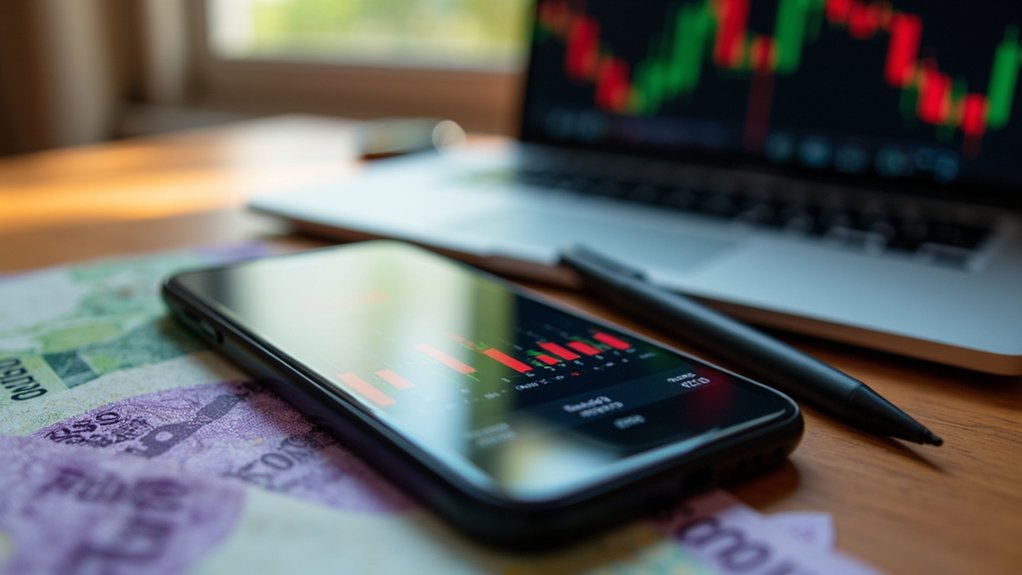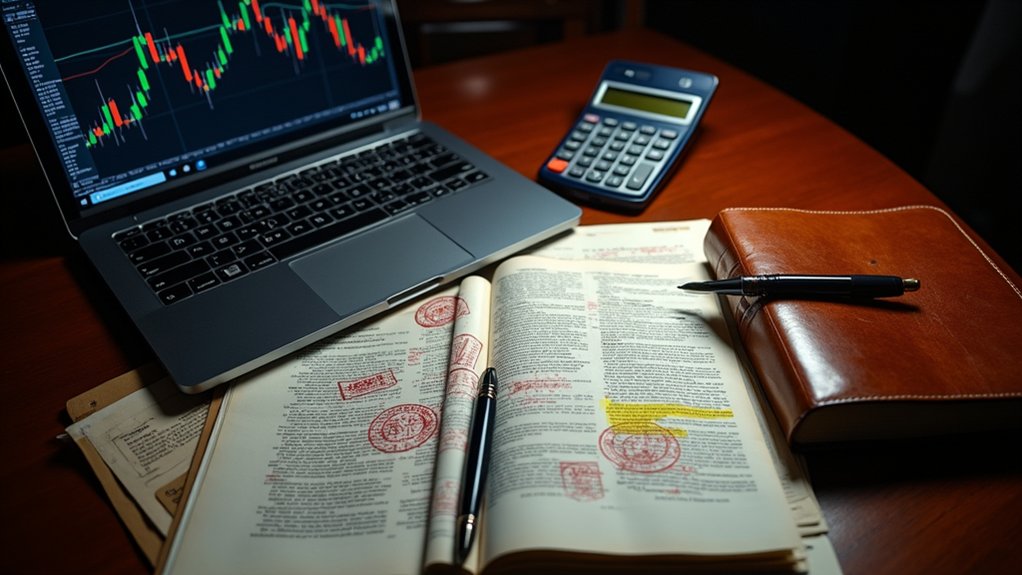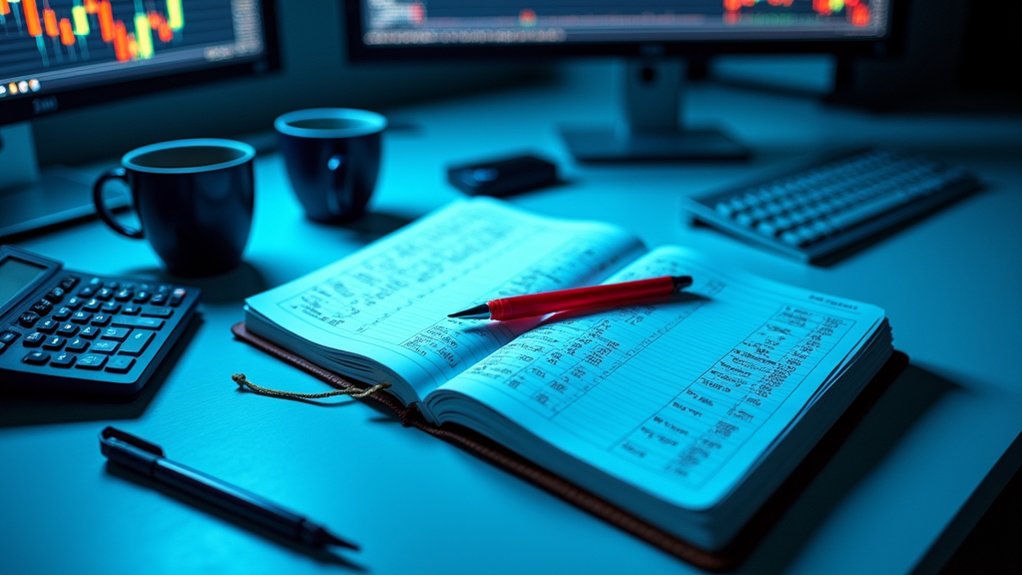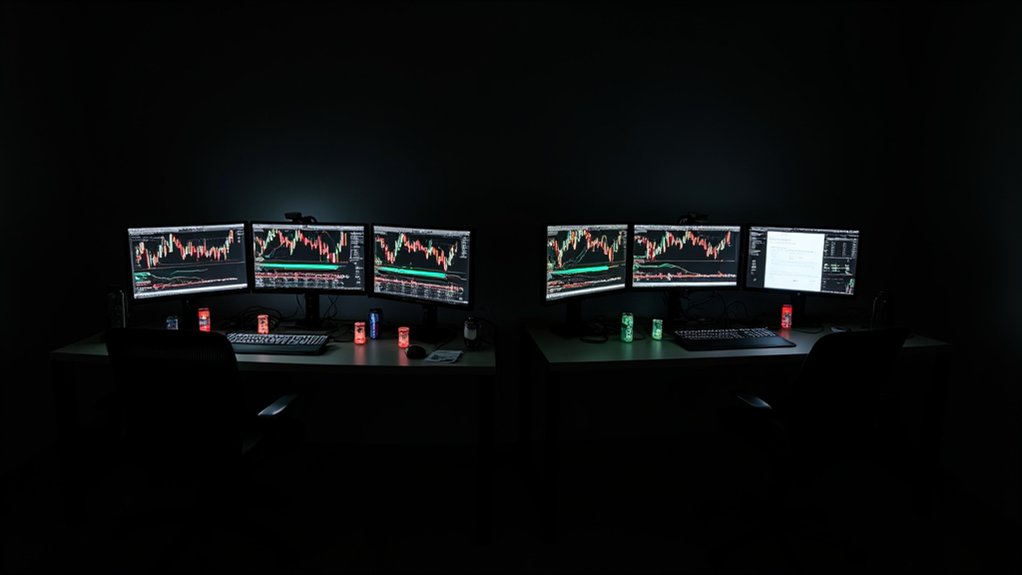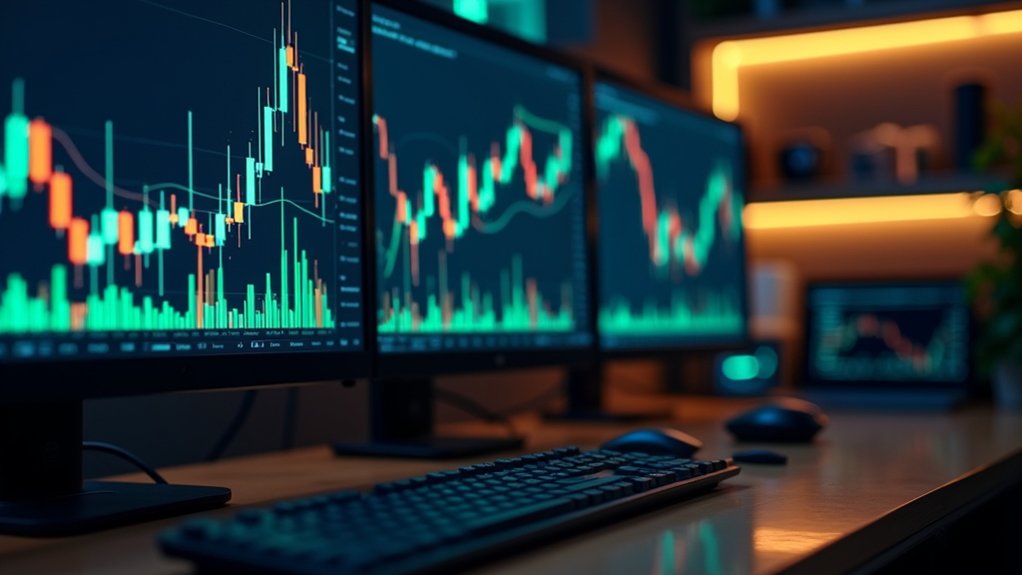Forex trading is legal in Liberia, overseen by the Central Bank of Liberia in a dual-currency economy where the US dollar and Liberian dollar both circulate. There's no dedicated forex regulator—just a patchwork of agencies—and the payment infrastructure still runs on cash, which makes deposits and withdrawals slower and pricier than most traders expect. Scams thrive in the gaps: fake brokers, signal sellers, and offshore platforms vanishing with crypto deposits are common. Two out of three retail traders lose money every quarter, and fraud makes those odds worse. The details below explain what works, what doesn't, and where the land mines hide.
Quick Facts That Matter
- Forex trading is legal in Liberia under CBL oversight, but regulation remains fragmented with no dedicated independent authority.
- Trading occurs 24/5 via decentralized OTC platforms like MT4/MT5, with best liquidity during London-New York overlap (13:00–17:00 GMT).
- Cash dominates payments; digital infrastructure is limited, causing higher fees and delays despite growing mobile money adoption.
- Tax obligations for forex income remain unclear—CBL publishes no information on capital gains rates, filing deadlines, or reporting thresholds.
- Two-thirds of retail traders lose money quarterly; scams proliferate via social media, with fake brokers and offshore platforms vanishing.
Overview: Forex Trading in Liberia

Liberia runs a dual-currency system that most countries wouldn't touch with a ten-foot pole. Both the Liberian dollar and the US dollar circulate as legal tender—simultaneously. The Central Bank of Liberia oversees this arrangement under a floating exchange rate regime, meaning market forces decide what the LD is worth on any given day. As of October 30, 2025, one USD buys 183 Liberian dollars.
The economy leans heavily on commodities: iron ore, rubber, diamonds, gold. Exports hit 1.1 billion USD in 2022. No conversion restrictions exist for investment-related funds. The Central Bank conducts regular foreign exchange auctions to stabilize the exchange rate and support critical imports. Through monetary policy implementation, the bank works to maintain currency stability and control inflation in this complex dual-currency environment. Liberia's inflation rate fell to 4.70% in September 2025, down from 5.60% the previous month. It's unconventional, but it works.
Is Forex Trading Legal in Liberia?

The short answer? Yes, forex trading is legal in Liberia. The Central Bank of Liberia oversees the whole operation—licensing brokers, enforcing rules, shutting down unauthorized dealers. Both standard and Islamic accounts get the green light under CBL's framework.
Liberia runs a dual-currency system: Liberian dollars and US dollars both count as legal tender. Currency conversion? No restrictions. The catch: brokers need CBL licensing or face penalties—$1,000 minimum or 25% of the transaction value, whichever hurts more. Plus asset seizures. The regulatory teeth are real.
Capital flows freely, profits transfer without caps after a three-day banking hold. Mobile money has become the go-to payment method for many traders navigating the local market. The Regulation & Supervision Department maintains the safety and integrity of the Liberian financial system, working alongside the CBL to monitor broker activities. Understanding the legal frameworks governing forex trading helps traders navigate compliance requirements and avoid unauthorized dealers.
Who Regulates Forex Trading in Liberia?
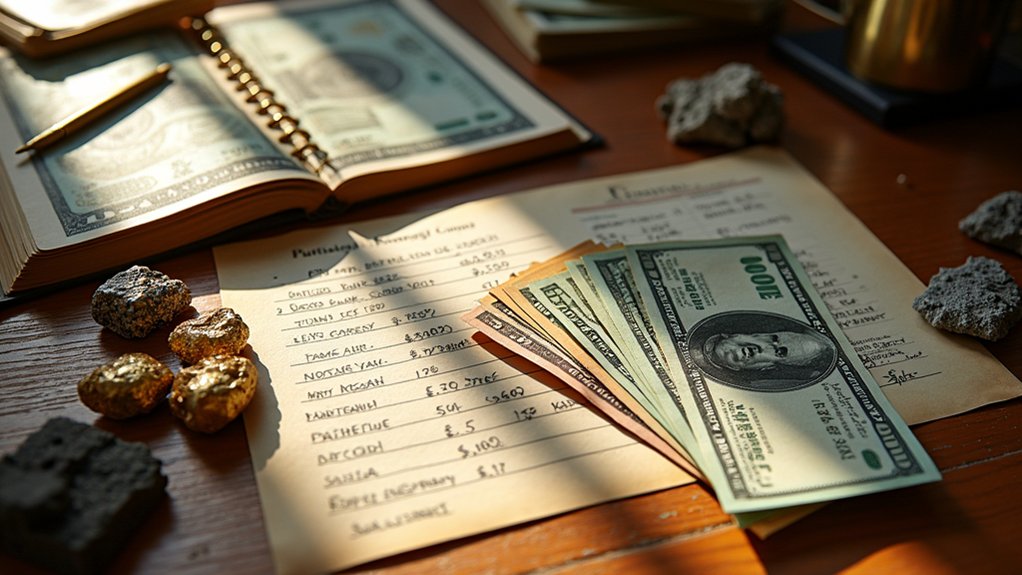
Who's watching the forex shop in Liberia? The Central Bank of Liberia. Full stop.
The Central Bank of Liberia runs the forex show—no independent regulator, no formal framework, just CBL calling the shots.
CBL holds primary authority over forex trading activities, licensing brokers and enforcing exchange control laws.
The Ministry of Commerce, Liberia Revenue Authority, and Ministry of Finance also issue directives.
But here's the kicker: there's no dedicated independent body specifically governing forex trading. The legislation isn't formally reflected in statutory framework either. It's fragmented.
Trade without CBL licensing? Expect asset confiscation and operational shutdown.
Non-compliant financial institutions face penalties of $1,000 or 25% of transaction value—whichever hurts more.
CBL oversight is intended to protect traders' interests in what remains a high-risk market.
Many well-known international brokers accept Liberian traders despite the lack of local regulation.
Like in other emerging markets, understanding exchange control laws is crucial for anyone looking to participate in currency trading legally.
How Forex Trading Works in Liberia

Regulations mean nothing if traders can't actually access the market.
In Liberia, forex operates as a decentralized OTC network—no central exchange, just electronic connections between banks, brokers, and traders. The dual-currency system (Liberian dollar and US dollar) adds a local twist. Traders speculate on pairs like EUR/USD or GBP/JPY through platforms such as MT4 and MT5.
Deposits? Range from zero at Interactive Brokers to around 19,390 LRD elsewhere. Skrill, Neteller, bank transfers—multiple funding routes exist.
Markets run 24/5, liquidity stays high, and over 1,000 instruments are tradable. Simple mechanics, really. Access isn't the problem.
The market's liquidity and pricing are ultimately shaped by central banks, commercial banks, institutional investors, and other major participants who drive global currency flows.
Best Time to Trade from Liberia

Between midnight and 4 PM GMT, Liberian traders hit their stride.
Liberian traders capitalize on GMT alignment, operating through midnight until 4 PM when London and New York sessions deliver peak liquidity.
London opens at 3 AM GMT, New York follows at 1 PM GMT, and the overlap—roughly 1 PM to 5 PM GMT—delivers the fattest volume.
EUR/USD and GBP/USD jump during that window, sometimes 70 pips versus 30 pips in quieter stretches.
Tokyo wraps by 3 AM GMT, so Asian pairs fade early.
Sunday kickoff happens at 10 PM GMT when Sydney lights up.
Friday closes at 10 PM GMT.
Liberia shares GMT year-round, no daylight saving nonsense, which simplifies the calendar.
Understanding how volatility shifts across these sessions helps traders in Monrovia identify when spreads tighten and price action accelerates.
Payments, Deposits and Withdrawals in Liberia
Most Liberian retail forex traders stare at a sobering reality: deposits and withdrawals take longer and cost more than almost anywhere else on the continent.
Cash still dominates. Digital infrastructure lags. Wire transfers through Ecobank, UBA, or GT Bank work, but fees bite hard—limited corresponding banking relationships see to that. MoneyGram and Western Union operate nationwide, though expect delays. Large transfers? Plan on several days for foreign exchange shortages to clear. Non-account holders face a US$5,000 cap on over-the-counter moves within thirty days.
International Visa debit cards exist. Mobile money crawls forward. Nothing here happens fast or cheap. Traders concerned with security should familiarize themselves with secure payment methods before selecting a broker, as the right choice can minimize both risk and transaction costs.
Taxes, Reporting and Money Rules in Liberia
How does a Liberian forex trader know what to pay the taxman? Good question. The search results don't say. There's nothing about capital gains rates, nothing about forex income rules, nothing about filing deadlines. The Central Bank of Liberia isn't exactly broadcasting trader tax obligations.
One bright spot: Liberia allows 100 percent repatriation with no currency exchange restrictions. Money can move freely.
But actual tax code for forex? Reporting thresholds? AML documentation standards? Penalties? All missing. A trader wanting clarity will need to dig far deeper than public sources reveal. In contrast, Morocco's approach to forex regulation shows how Capital Markets Authority oversight can provide clearer structures for traders navigating foreign exchange activities. That's frustrating, but that's the reality.
Forex Trading Scams and Risks in Liberia
Scammers love forex, and Liberia is no exception. Fake brokers build slick websites. Signal sellers promise guaranteed returns. Both are lying. Two out of three retail traders lose money every quarter—that's just normal trading. Add fraud to the mix? Forget it.
Social media hosts 32% of forex scams: Facebook, TikTok, Instagram, Telegram. Red flags include pressure tactics, sky-high leverage offers, zero regulation. No FCA, CFTC, or ASIC stamp? Walk away.
Account takeovers drain funds fast. Bonus abuse runs rampant. Offshore platforms collect crypto deposits, then vanish. The $7.5 trillion daily forex market attracts criminals like flies.
Quick Q and A
Can I Trade Forex Part-Time While Keeping My Regular Job in Liberia?
Yes, part-time forex trading is feasible in Liberia. Brokers offer 24/7 platform access and mobile applications enabling trading outside regular employment hours. IC Markets specifically caters to beginner part-time traders, requiring minimal 38,780 LRD deposits for account activation.
What Internet Speed Do I Need for Reliable Forex Trading in Liberia?
Forex platforms typically require only 1–5 Mbps for stable operation. Liberia's average broadband speed of 12.4 Mbps and mobile networks at 44.6 Mbps exceed minimum thresholds, though traders should verify connection stability and latency.
Do Liberian Banks Report My Forex Trading Activity to Tax Authorities?
Banks in Liberia report forex transactions to the Central Bank and Financial Intelligence Unit for regulatory compliance, but no explicit requirement exists for direct reporting of retail forex trading activity to tax authorities specifically.
Can I Open a Forex Account Using a Liberian Passport From Abroad?
Yes, most international brokers accept Liberian passports for account verification when opening forex accounts from abroad. Traders must guarantee passport validity, provide proof of address, and comply with the broker's specific KYC documentation requirements.
Are There Local Forex Trading Communities or Mentors Available in Liberia?
Local forex communities are emerging in Liberia, including events like the Monrovia Forex Expo 2025. However, structured mentorship networks remain limited, with most traders relying on international broker education resources and informal peer networks for guidance.
The Bottom Line
Forex trading in Liberia isn't impossible—just complicated. Spotty internet, banking hurdles, and murky regulations make it a grind. The dual currency system adds its own weird twist. Scams lurk everywhere, preying on inexperienced traders. Tax rules? Unclear at best. But determined traders *do* find ways in, usually through offshore brokers. It's not for everyone. Maybe not for most. The friction is real, the risks are high, and the surprises aren't always pleasant.

